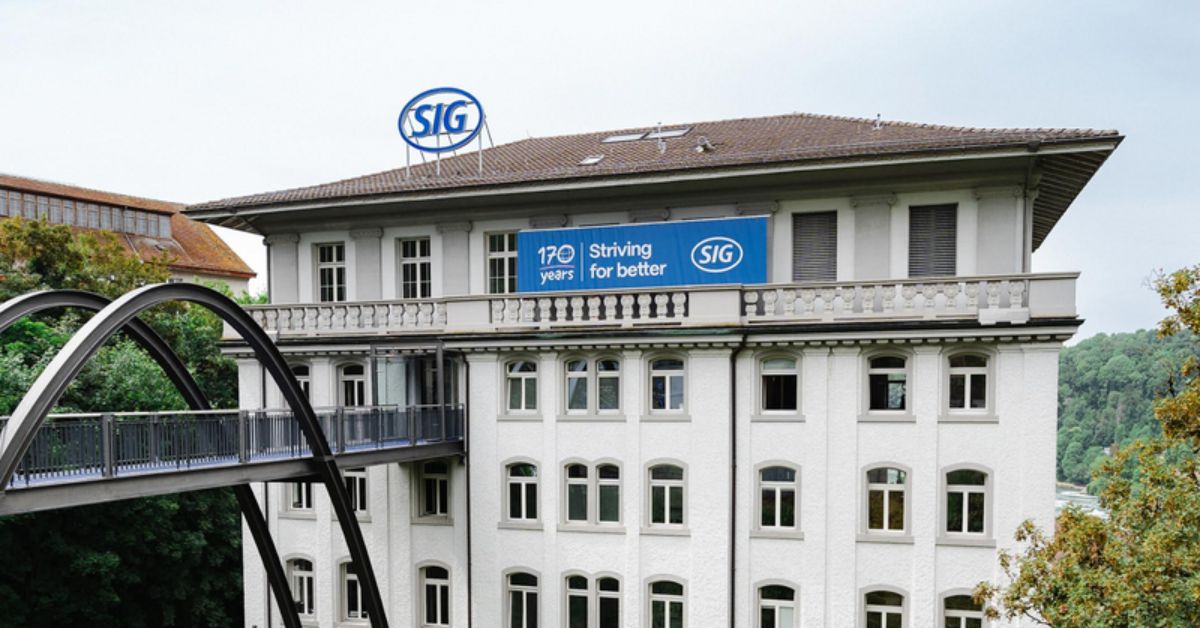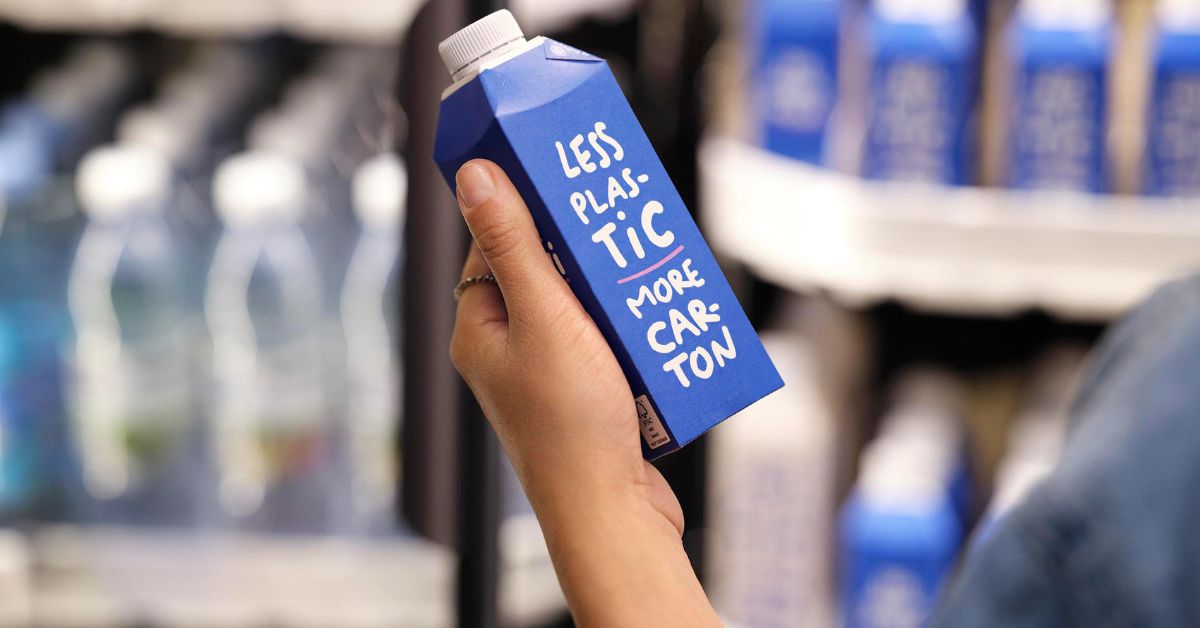DUBAI — The food and beverage (F&B) packaging industry in the GCC has undergone significant transformations in response to the evolving landscape shaped by the COVID-19 pandemic.
Consumer behaviors and preferences have shifted, supply chain resilience has become a priority, and sustainability is now a central focus. In particular, GCC consumer behavior has experienced a remarkable transformation post-pandemic.
According to Abdelghany Eladib, SIG’s President & General Manager for IMEA, health and wellness have become paramount consumer considerations, leading to increased demand for products that taste great and contribute to overall well-being.
Convenience and sustainability have risen to the forefront, with on-the-go and eco-friendly options gaining popularity. F&B businesses are adapting quickly, focusing on innovation to meet these changing consumer preferences.

Eladib also noted a surge in demand for healthier choices like plant-based beverages and foods, prompting SIG to collaborate with regional partners to provide packaging solutions aligned with these evolving demands.
Building Resilient Supply Chains Post-Pandemic
Supply chain disruptions were a significant challenge during the pandemic, emphasizing the need for resilient and agile supply chains.
Eladib highlights that F&B businesses in the GCC are actively diversifying their supplier base, adopting digital supply chain solutions, and focusing on efficient inventory management. The partnership with SIG plays a role in this strategy, with aseptic carton packaging extending product shelf life and reducing the risk of disruptions due to spoilage.
In an interview with TRENDS, Eladib said, “Inventory management is also a key focus, helping companies ensure that they have the right stock to meet consumer demand.”
Addressing Labor Shortages through Automation
Labor shortages, a global challenge, also affect the F&B sector in the GCC. Eladib advises regional businesses to adopt automation and digital solutions to address this challenge. AI and robotics enhance production efficiency, reduce reliance on manual labor, and increase productivity.
“These strategies help address labor shortages while increasing productivity and consistency,” explained Eladib.
Government Support for Innovation in the F&B Sector
“Governments provide incentives, grants, and streamlined regulatory processes to encourage F&B companies to invest in innovation,” says Eladib.
At the same time, initiatives like the UAE FoodTech Challenge and Saudi Vision 2030 are supporting entrepreneurship, sustainable practices, and fostering growth in the F&B sector.
Health and wellness have become paramount consumer considerations…
Abdelghany Eladib, SIG’s President & General Manager for IMEA
Collaboration with government agencies and institutions is crucial for F&B businesses to access the resources, insights, and regulatory frameworks necessary for sustainable growth. Eladib emphasizes that such collaborations facilitate market access and ensure alignment with government priorities and regulations, enabling businesses to navigate the post-COVID-19 landscape more effectively.
Embracing Sustainability in the F&B Sector
The F&B sector in the GCC is adopting a multifaceted approach to sustainability, from reducing food waste to investing in renewable energy sources. Local sourcing and eco-friendly packaging are vital components of these efforts. Eladib underscores the importance of packaging in sustainability initiatives and SIG’s contribution to eco-friendly packaging solutions within the GCC.
F&B businesses in the GCC are making strides in sustainable sourcing practices, collaborating with local farmers and suppliers to promote sustainable agricultural practices. This ensures the quality and authenticity of products and contributes to a more eco-friendly supply chain, aligning with consumer preferences for fresh and authentic products.
At A Glance Transformation of GCC's F&B Packaging Industry Post-COVID: The market has witnessed significant changes in response to evolving consumer behaviors and preferences, with a focus on health, wellness, and sustainability. Shift in Consumer Preferences: There is an increased demand for health-oriented products and eco-friendly packaging. Building Resilient Supply Chains: There is an emphasis on diversifying suppliers and adopting digital solutions for efficient inventory management. Automation to Address Labor Shortages: Adoption of AI and robotics in the F&B sector has enhanced production efficiency and reduce manual labor dependency. Government Support for F&B Innovation: Incentives and streamlined processes encourage investment in innovative practices. Sustainability in the F&B Sector: Adoption of local sourcing, waste reduction, and eco-friendly packaging align with consumer preferences for authenticity. Digital Technology in F&B Operations: There is an enhanced traceability, quality assurance, and consumer interaction through digital solutions. Advice for F&B Entrepreneurs: Investing in sustainable and intelligent packaging will help them stand out in the market.
Eladib acknowledges notable partnerships between F&B companies and environmental organizations in the GCC. These collaborations focus on waste reduction, efficient resource management, and promoting eco-friendly practices, working collectively to create a more sustainable future.
SIG’s Contribution to Sustainable Packaging Solutions
The role of packaging in sustainability efforts is significant, impacting food preservation, transportation efficiency, and consumer convenience. SIG actively contributes to sustainable packaging solutions by offering highly efficient and recyclable materials, simplifying recycling processes, and reducing waste.
Eladib highlights the importance of environmentally conscious packaging in helping the F&B industry achieve its sustainability goals.
Eladib identifies the trend of accelerated product launches in the F&B industry, emphasizing the need for faster, more sustainable, and affordable packaging solutions.
SIG has introduced state-of-the-art filling machines, such as the SIG SmileSmall 24 Aseptic and SIG spouted pouches (SIG SureFill 52P), to cater to the demand for high-speed, flexible, and innovative packaging options.
On-the-Go Beverage Market and SIG’s Approach
The on-the-go beverage market has grown significantly, aligning with SIG’s commitment to providing convenient packaging solutions. SIG offers single-serve, easy-to-carry options that cater to consumers’ on-the-go lifestyles, recognizing the importance of convenience in today’s fast-paced world.
Eladib discusses the ‘pauperization’ trend, where SIG has introduced the SIG DomeMini, a carton bottle designed for recycling. This innovation combines the convenience of plastic bottles with the environmental benefits of carton packs, encouraging consumers to choose responsible packaging while reducing plastic usage.
Digital Technology in F&B Operations
Digital technology is transforming F&B operations, with trends in digital supply chain management, quality control, and consumer engagement.
“These packaging solutions enhance traceability, quality assurance, and consumer interaction. For instance, our QR code-enabled packaging allows consumers to access information about the product’s origin and journey, providing transparency and engagement. These innovations improve efficiency and transparency in the supply chain,” says Eladib.
Packaging design and materials advancements focus on providing lightweight, convenient, and sustainable solutions. The SIG DomeMini 12 Aseptic filling machine, presented at Gulfood Manufacturing 2023, offers operational efficiency, flexibility, and remarkable returns on investment for beverage manufacturers. Made from FSC™-certified paperboard and produced using renewable electricity, the SIG DomeMini aligns with the global shift toward eco-friendly packaging.

Advice for F&B Entrepreneurs on Packaging Innovation
Eladib advises F&B entrepreneurs, emphasizing the importance of prioritizing packaging as a critical element of innovation. He encourages entrepreneurs to invest in sustainable and intelligent packaging options that align with consumer trends, collaborate with packaging experts, and explore the latest innovations to make their products stand out.
SIG deeply supports local and international food brands in the GCC region, acknowledging the diverse F&B culture. Working closely with partners, SIG tailors packaging solutions that resonate with the local culture while meeting international quality and sustainability standards, ensuring products are well-received and appreciated by consumers.
The food and beverage packaging business in the GCC is navigating a dynamic landscape shaped by changing consumer behaviors, supply chain challenges, and a growing emphasis on sustainability.








